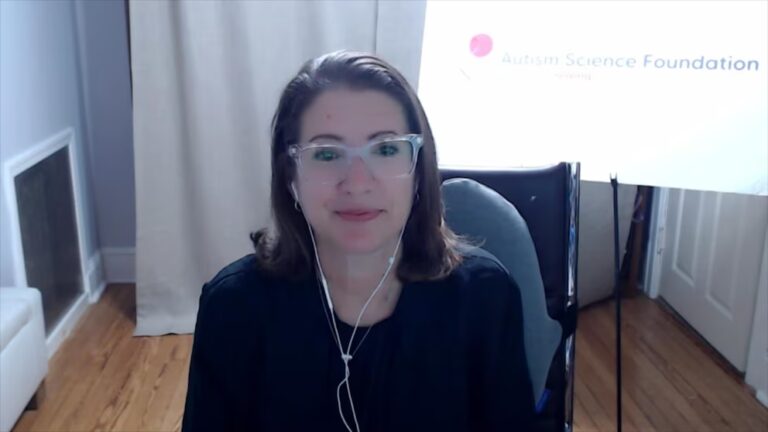
Their response to trauma is not to shut down, but to speak up.

Zach Gibson/Getty ImagesDemonstrators hold signs during a “lie-in” demonstration supporting gun control reform near the White House, Feb. 19, 2018, in Washington, D.C.
Psychological trauma is surprisingly common. At least once in their lifetime, most Americans will experience a traumatic event. As defined by the Diagnostic and Statistical Manual of Mental Disorders (DSM-5), that means exposure to actual or threatened death, serious injury or sexual violence.
“Most of us who face a cataclysmic, traumatic event may have intrusive recollections, intrusive thoughts, nightmares, and a constellation of negative emotions,” said Lawrence Calhoun, Ph.D., professor emeritus in the Department of Psychological Science at UNC Charlotte.
A combination of these symptoms, and others, lasting for at least one month is consistent with PTSD, posttraumatic stress disorder. PTSD is a potentially debilitating condition that affects nearly 7 percent of Americans.

Joe Raedle/Getty ImagesCindy Sotelo (R) cries with her daughter, Jessica Malone, an alumna of Marjory Stoneman Douglas High School, as they visit a makeshift memorial setup in front of the school, Feb. 19, 2018 in Parkland, Fla.
But if trauma is so common, shouldn’t the rate of PTSD be higher?
Not necessarily. People may be more resilient than they realize.
Psychologically speaking, resilience comes from whatever buffers someone from the negative effects of trauma, helping them “bounce back” and successfully adapt when horrible events shake them. Supportive relationships, optimism and good problem-solving skills, among other factors, help people “bend but not break” after traumatizing experiences.
Some people bounce back from trauma, and others can even grow from it.
Student activists react to Trump, Florida lawmakers on guns
Florida teen shooting survivors announce ‘March for Our Lives’ demonstration in Washington
School walkouts, sit-ins planned after Florida shooting
Posttraumatic growth (PTG) -– a theory developed by Calhoun and Richard Tedeschi, Ph.D., professor of psychology at UNC Charlotte -– explains how people who struggle with the negative effects of trauma can ultimately experience positive growth. They find a way to thrive after stressful events through their ability to appreciate life, see new possibilities, understand personal strengths, form closer relationships and deepen spirituality.

Joe Raedle/Getty ImagesPeople look on at the Marjory Stoneman Douglas High School, Feb. 18, 2018 in Parkland, Fla.
It’s not uncommon for people to turn tragedy into activism –- they don’t want their experience or the loss of loved ones to be in vain. Tedeschi noted that many social movements can be traced to trauma survivors who decided to bring about social change. Mothers Against Drunk Driving was founded by a mother whose child was killed by a drunk driver.
But people need to affect change at their own pace.
Tedeschi said: “Some people very quickly decide, ‘I’m going to do something.’ Some people have to go through quite a soul searching for a while.”

Gerald Herbert/APPeople comfort each other at a public memorial for the victims of the shooting at Marjory Stoneman Douglas High School, in Parkland, Fla., Feb. 16, 2018.
Deciding to act and achieving change are two separate things.
“Having passion and being on a mission is one thing, but turning it into practical results is dependent on a whole other set of abilities,” Tedeschi said. “Trauma does not necessarily inform people of how to do that.”
Expecting people to become activists immediately following trauma isn’t just unrealistic — it’s harmful. Calhoun emphasized that PTG is “something for most people that unfolds over time.”
He cautioned against therapists introducing the topic of posttraumatic growth to people too soon after traumatic events because it puts unnecessary pressure on them.

Joe Raedle/Getty ImagesPeople hug as they attend a candlelit memorial service for the victims of the shooting at Marjory Stoneman Douglas High School that killed 17 people, Feb. 15, 2018, in Parkland, Fla.
“I wouldn’t say anything,” Calhoun said. “I would listen. One of the mantras we have [is to] listen without necessarily trying to solve.”
And, of course, just because some good may eventually come from trauma, doesn’t mean that trauma is good.
“Posttraumatic growth comes at a high price for most people,” Calhoun said. “It’s a terrible gift.”
Sourse: abcnews.go.com






